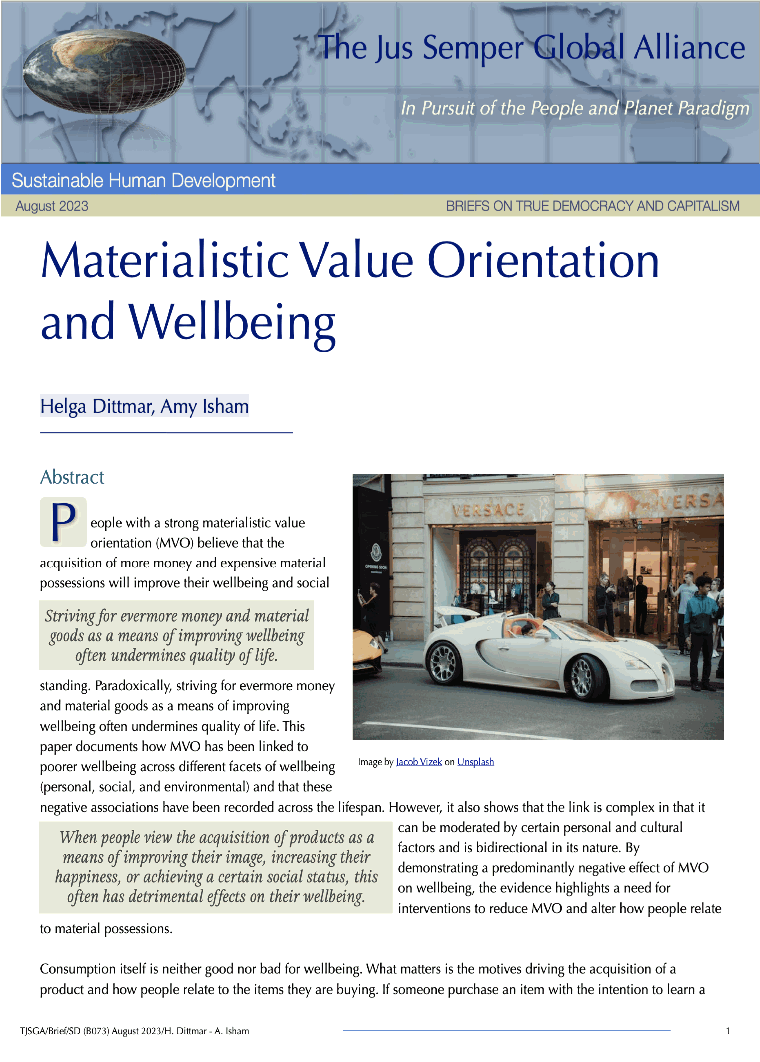Helga Dittmar, Amy Isham Consumption itself is neither good nor bad for wellbeing. What matters is the motives driving the acquisition of a product and how people relate to the items they are buying. If someone purchase an item with the intention to learn a new skill using it, or to gift it to another individual as a sign of their love, this may enhance their wellbeing. However, when people view the acquisition of products as a means of improving their image, increasing their happiness, or achieving a certain social status, this often has detrimental effects on their wellbeing. This latter view can be described as a materialistic value orientation (MVO). For a full read of this brief, click here or on the picture to download the pdf file.
|

- © The Jus Semper Global Alliance
| Home |  | Resources |  | Economic Data |  | Materialistic Value Orientation and Wellbeing |


